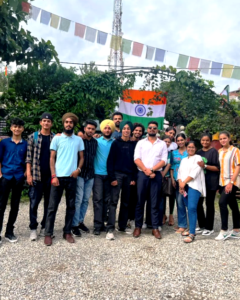Question – Every year several languages die out. Some people think that this is not important because life will be easier if there are fewer languages in the world. To what extent do you agree or disagree with this opinion?
Give reasons for your answer and include any relevant examples from your own knowledge or experience. Write atleast 250. Write at least 250 words.
In a world characterized by globalization and technological advancements, the issue of vanishing languages sparks debate. Some argue that the extinction of languages is inconsequential, suggesting that life would be simpler with fewer languages. This essay aims to explore this perspective and argue for the importance of preserving linguistic diversity.
Those who advocate for the reduction of languages often argue that a common global language facilitates communication, trade, and cultural exchange, making life more straightforward. They contend that a universal language minimizes misunderstandings and promotes efficiency in various domains, from business to international relations. However, I disagree with this viewpoint, as I believe that the preservation of diverse languages is crucial for several reasons. Firstly, languages are repositories of unique cultural and historical knowledge. Each language carries with it a distinct worldview, cultural nuances, and traditional practices that contribute to the rich tapestry of global heritage. Losing a language means losing a part of this invaluable cultural wealth.
Furthermore, linguistic diversity fosters cognitive flexibility and creativity. Multilingual individuals often demonstrate enhanced problem-solving skills, adaptability, and cognitive abilities, contributing positively to intellectual growth and innovation. Additionally, diverse languages facilitate a deeper understanding of different perspectives, promoting tolerance and cultural appreciation. For instance, the preservation of indigenous languages is vital for the survival of indigenous cultures. Many indigenous communities rely on their languages to pass down traditional knowledge, maintain cultural identity, and sustain their unique ways of life.
In conclusion, the idea that life would be easier with fewer languages oversimplifies the complex role that languages play in shaping human societies. Preserving linguistic diversity is not merely about maintaining linguistic differences but safeguarding the rich cultural, historical, and cognitive aspects embedded in each language. Embracing and valuing linguistic diversity contributes to a more enriched and interconnected global community.








